This post contains affiliate links for which we may receive compensation at no additional cost to you. Click here to read our full affiliate policy.
It’s almost February already; here is our February Epic book recommendation. Although this month has fewer days, it’s full of opportunities for learning, from Black History Month to Presidents’ Day. February 1st is even World Read Aloud Day—here are five ways to celebrate:
Our first recommendation is Mélina Mangal’s compelling and well-researched biography of Black biologist Ernest Everett Just. In addition to being perfect for honoring Black History Month, it connects well to National Public Science Day on February 17th.
Late elementary and middle school students will appreciate learning about how Just triumphed over many challenges in his life, including typhoid fever, a hurricane, and segregation, to become a groundbreaking scientist.
Filled with whimsical illustrations, this book concludes with a helpful collection of resources, including a detailed timeline of Just’s life.
Therapy ideas and skills to target:
- Personal narrative and discussion: students could talk about difficulties they have faced and how they overcame them.
- Personal narrative and discussion: students could share science topics they are interested in learning more about.
- Perspective taking and inferences: students could discuss how Just might have felt as he encountered the multiple significant challenges in his life.
- Extension: students could research other Black scientists, including chemist Alice Ball, inventor George Washington Carver, and NASA specialist Katherine Johnson (featured in the book and film Hidden Figures).
To grab a copy of this beautifully illustrated book in hard copy, click here.
For much of the Northern Hemisphere, February is cold and rainy—the perfect time to cozy up with a book that celebrates the humble umbrella (especially if you happen to read it on February 10th, which is National Umbrella Day).
Early elementary students will love Jackie Azúa Kramer’s charming and imaginative picture book about the many possible uses for a single umbrella! It’s a celebration of creativity and friendship, with illustrations that are sure to bring on some giggles.
Therapy ideas and skills to target:
- Object function (with a twist!): students could look at pictures of common objects and answer the question, “What do you do with this?” Then they could brainstorm alternative uses for some of the objects.
- Predicting: as each new umbrella experience is unveiled in the book, students could predict how the other animals will react.
- Sequencing: students could explain the steps in using an umbrella (or other common objects).
- Narrative: the book closes with a group of animals planning their next adventures; students could create a sequel to the story, describing what the animals will do.
For a hard copy of this book, visit Amazon.
Of course, February is all about love, with Valentine’s Day on February 14th. But it’s not just about romantic love! We also have National Make a Friend Day on February 11th, Random Acts of Kindness Day on February 17th, and International Stand Up to Bullying Day on February 24th, all celebrating a different kind of love: friendship!
Russell Ayto’s sweet picture book features Bush Baby, a tiny animal with enormously expressive eyes, who finds an unexpected friend after experiencing some painful rejections. This simple story is powerful in that it not only highlights the joy of connecting with someone who is different from you, it acknowledges the courage required when reaching out to a potential new friend.
Therapy ideas and skills to target:
- Describing/WH-questions: students could describe one of their friends, or describe “the perfect friend”—what do they act like? Where do they live? What kinds of things do they like to do? What makes someone a great friend?
- Personal narrative/discussion/SEL: students could talk about how to be a good friend and share memories related to friendship.
- Sequencing: students could discuss the possible steps in making a new friend.
- Extension/persuasive writing: students could create posters or speeches for Stand Up to Bullying Day, explaining why bullying is harmful and what to do about it.
This 32-page colorful story book is also available in hardcover.
Abraham Lincoln’s birthday is February 12th. If your students are already familiar with the biographical details of his life, why not introduce them to this engaging exploration of how The Lincoln Memorial was created?
This nonfiction book by Linda Booth Sweeney is detailed but accessible, perfect for students in the 9–12-year-old age range. It’s unique in that while it’s a perfect read to honor Lincoln, it also sheds light on a lesser-known historical figure: Daniel Chester French, the sculptor behind the memorial. Students may be inspired to learn that this creator of such a massive and famous work got his start by sculpting . . . turnips!
Therapy ideas and skills to target:
- Narrative retell: although this is a nonfiction book, it reads like a fascinating story—students could recount what they learn about French’s life.
- Describing: after reading the book, students could do image searches to find photographs of the memorial and describe what they see.
- Complex sequencing: students could describe the steps in building the memorial.
- Extension/compare and contrast: The Lincoln Memorial is located on The National Mall, near many other well-known American monuments, including The Martin Luther King, Jr. Memorial, The Franklin D. Roosevelt Memorial, and The Jefferson Memorial. Students could research the different memorials, and then compare and contrast their similarities and differences.
- Bonus extension: students could use Play-Doh or other kid-friendly materials to create their own mini monuments!
Read Monument Maker in hardcopy.
Let’s Tell a Story: Fairy Tale Adventure
Our final February recommendation is one we hope you’ll turn to over and over again! This gem from Lily Murray and Wesley Robins is a “choose your own adventure” masterpiece, tailor-made to support students in celebrating Tell a Fairy Tale Day on February 26th.
The book opens with an excellent explanation of fairy tale structure, and as students progress from page to page, they have the opportunity to choose who they want to be, where they want to go, and what obstacles and escapades they will encounter along the way.
This book is appropriate for a wide variety of ages, and could be used to target almost any goal. It’s a good one to add to your hardcover collection.
For younger students, or those who are unfamiliar with fairy tales, it’s likely worthwhile to spend some time introducing the genre, whether through movie clips or other books like The Ugly Duckling or Jack and the Beanstalk. Know your audience, though—many classic fairy tales are pretty horrifying and not the best option for very sensitive little ones!
Therapy ideas and skills to target:
- Narrative, narrative, and more narrative! The beauty of this book is that students could journey through it hundreds of times and create a different story each time, so it’s ideal for eliciting multiple trials using a single resource.
- WH-questions and describing: the book’s structure (students make decisions about different questions on each page) creates a supportive opportunity to work on WH-questions, and the silly, detailed illustrations invite lots of describing!
- Basic concepts: very young students could look at the pictures and follow instructions like “find the BIG trees,” etc.
- Extension: students could research fairy tales from cultures other than their own, or act out the fairy tales they create using the book.
All of these books are available for free through Epic when you sign up for an educator account, or you could request them from your local library. Enjoy!
Want to stay in the loop for new speech therapy ideas and inspirations? I have put together a free Digital SLP podcast to share insight and tips on implementing your speech therapy sessions. If you are looking for fun and interactive speech therapy materials that students and SLPs both will love, check out what the Digital SLP® membership site has to offer, or sign up for our free trial now. Alternatively, check out our TpT store.

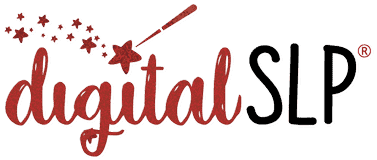
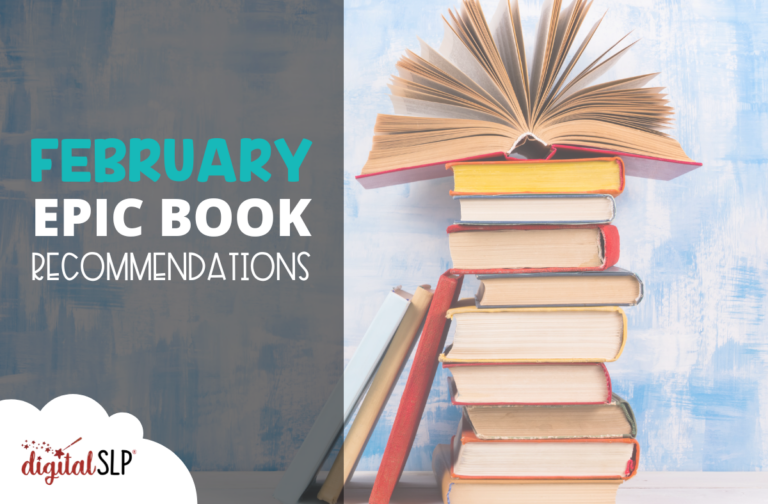
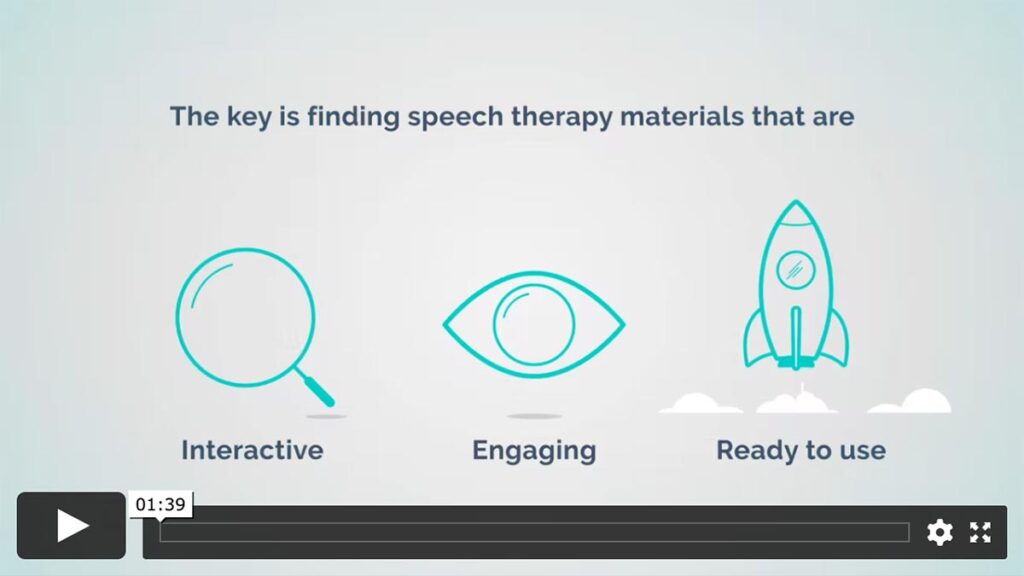
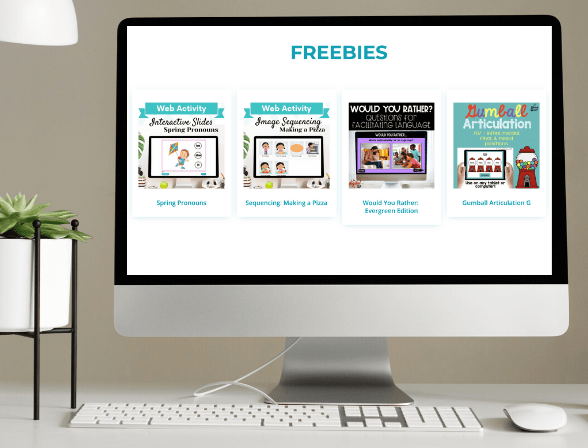

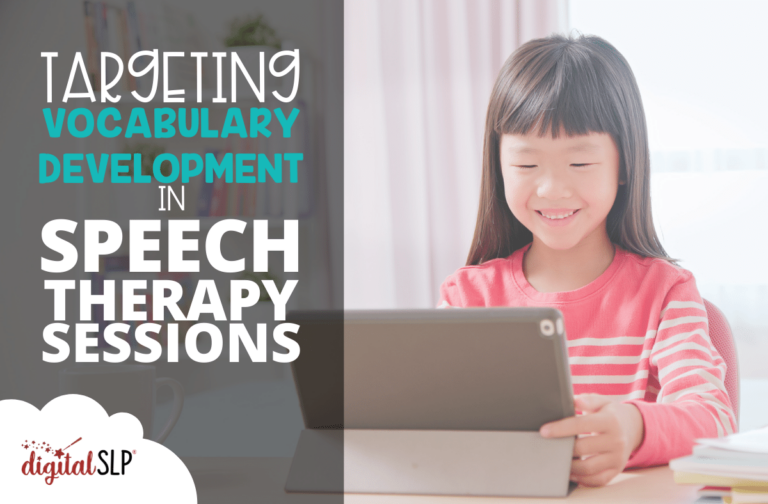


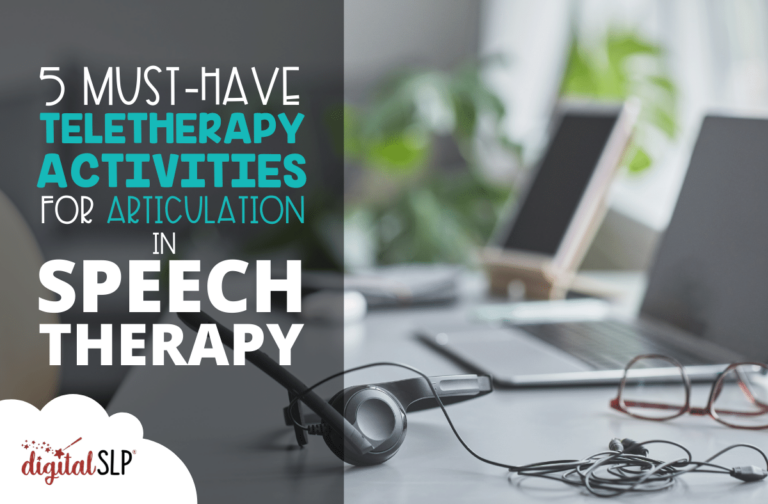
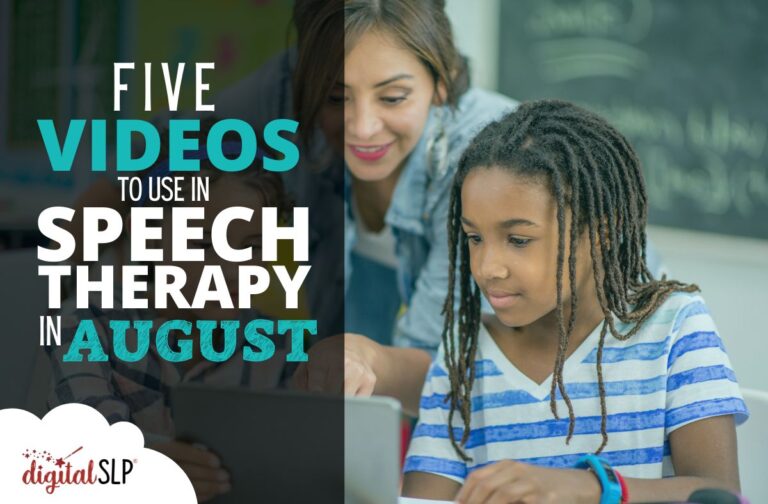
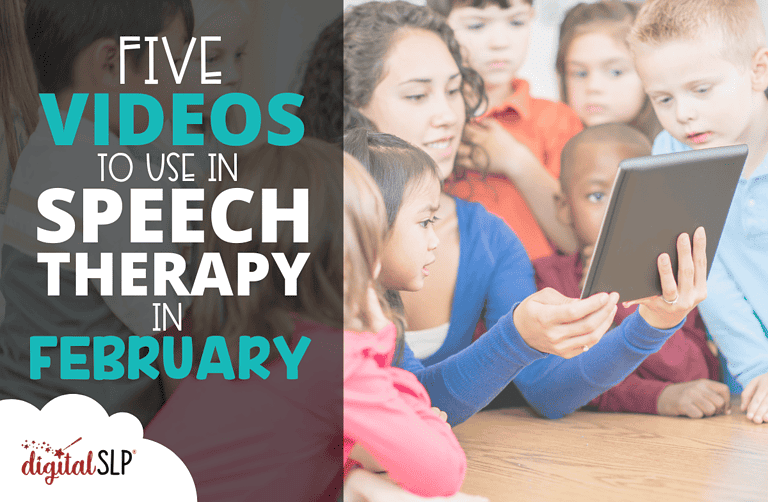
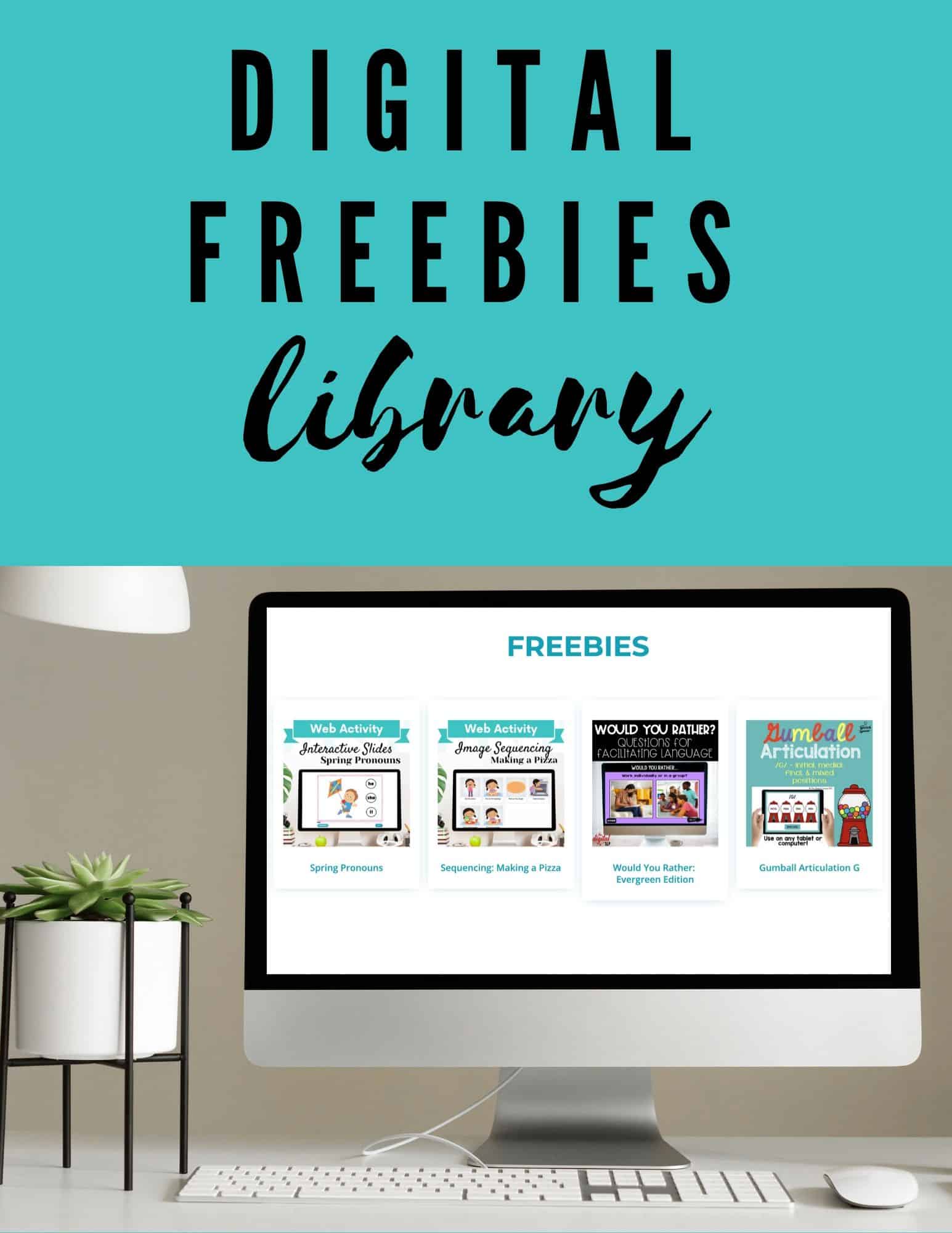
Recent Comments